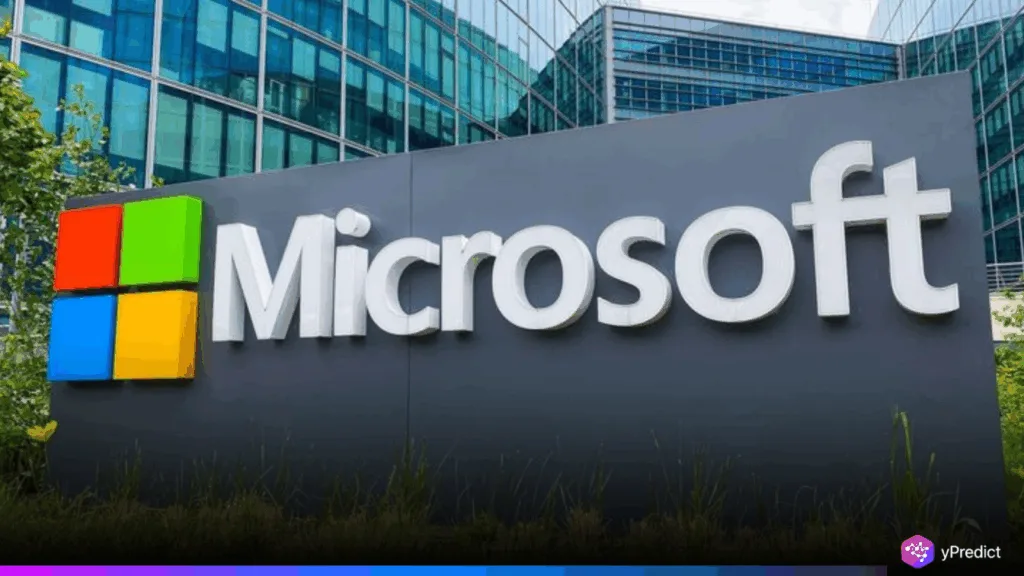
Microsoft will lay off nearly 4% of its global workforce, equating to around 9,000 employees. The move follows a previous round of 6,000 job cuts in May. With a headcount of approximately 228,000 as of June 2024, the tech giant is streamlining operations to manage rising costs linked to artificial intelligence expansion. These cuts will affect multiple departments, including its King division in Barcelona. Microsoft emphasized that it aims to reduce organizational layers and improve operational efficiency. The announcement reflects broader industry trends, with other tech leaders like Google, Meta, and Amazon also trimming jobs amid massive AI infrastructure investments.
AI Expansion Pressures Microsoft’s Bottom Line
Microsoft is betting big on artificial intelligence, but the price tag is forcing hard decisions. The company has committed $80 billion in capital spending for fiscal year 2025, much of it allocated to scaling up AI infrastructure through Azure and Copilot. As the AI arms race intensifies, these initiatives are reshaping Microsoft’s internal structure. Margins in its cloud division are already feeling the pressure, with the company warning of tighter profits in the June quarter.
The sacrifices are included in an organization-wide strategy of streamlining and redistributing resources to growth businesses. In a memo, Microsoft stated that it would streamline products and roles, and processes, and invest in such areas as AI research and cloud capacity. They are not just mere cost-cutting layoffs; this is a change in strategy. AI is getting central as the core of Microsoft, and the company is focusing more on agility and accelerated decision-making.
The decision also mirrors actions taken by Microsoft’s peers. Meta has trimmed underperformers, Google has consolidated AI teams, and Amazon has restructured various business units. For Microsoft, aligning headcount with its AI ambitions is both a financial necessity and a competitive maneuver. The layoffs show just how much is at stake in the evolving AI-powered economy.
Gaming and Consumer Units Also Hit
Microsoft’s layoffs are affecting more than just cloud and enterprise teams. The company’s gaming and consumer divisions are also being reshaped. Reports indicate that its Barcelona-based King division, best known for developing the Candy Crush franchise, is cutting 10% of its staff, about 200 jobs. This reflects a wider trend of trimming roles even in revenue-generating segments as AI becomes the company’s top priority. The cuts follow similar actions across Microsoft’s Xbox and HoloLens units in recent months. While gaming remains a major business line, Microsoft appears to be consolidating talent and reorienting around AI-enhanced game development, cloud streaming, and platform integration.
Internal sources say teams are being merged to remove redundancies and focus on AI tools that can reduce development cycles. Consumer services like Windows and Microsoft 365 will also see role consolidations as Copilot features become more integrated into user workflows. This indicates a deliberate effort to automate internal processes and increase output without expanding headcount. The shifts do not go without controversy. Others complained internally using internal discussion boards, and some of them noted that morale has been low due to fears of more layoffs. Nevertheless, executives believe that such measures are essential to long-term competitiveness in a tech world that is becoming ever more defined by AI.
Industry-Wide Layoffs Reflect New Reality
The restructuring at Microsoft is an example of the mass layoff going around the technology industry. The increased operational expenses, an unstable economy, and the realignment of AI promoted layoffs in such companies as Google, Meta, Amazon, and Salesforce. Although AI is opening up emerging opportunities in cloud computing, robotics, and software, it is causing businesses to review their employees’ requirements. Mid-level and low-end positions in white jobs are particularly at risk as the capabilities of AI agents increase. Industry analysts say this is only the beginning of a decade-long reshuffling. Microsoft’s moves signal that AI transformation isn’t just technical; it’s organizational. Jobs lost today may soon be replaced by roles that don’t yet exist.





